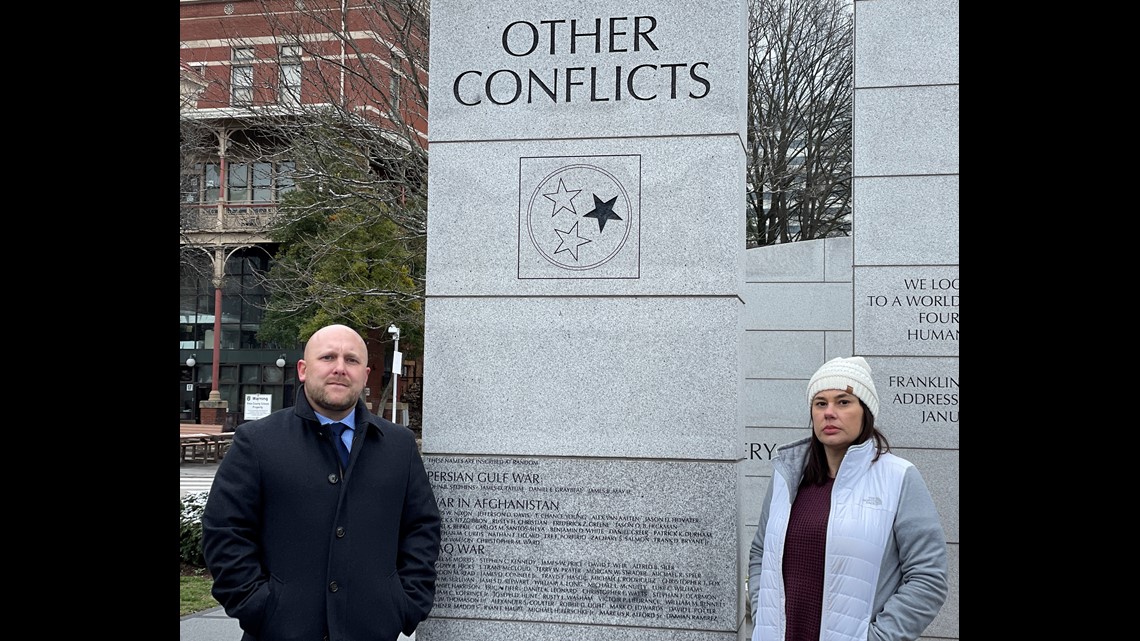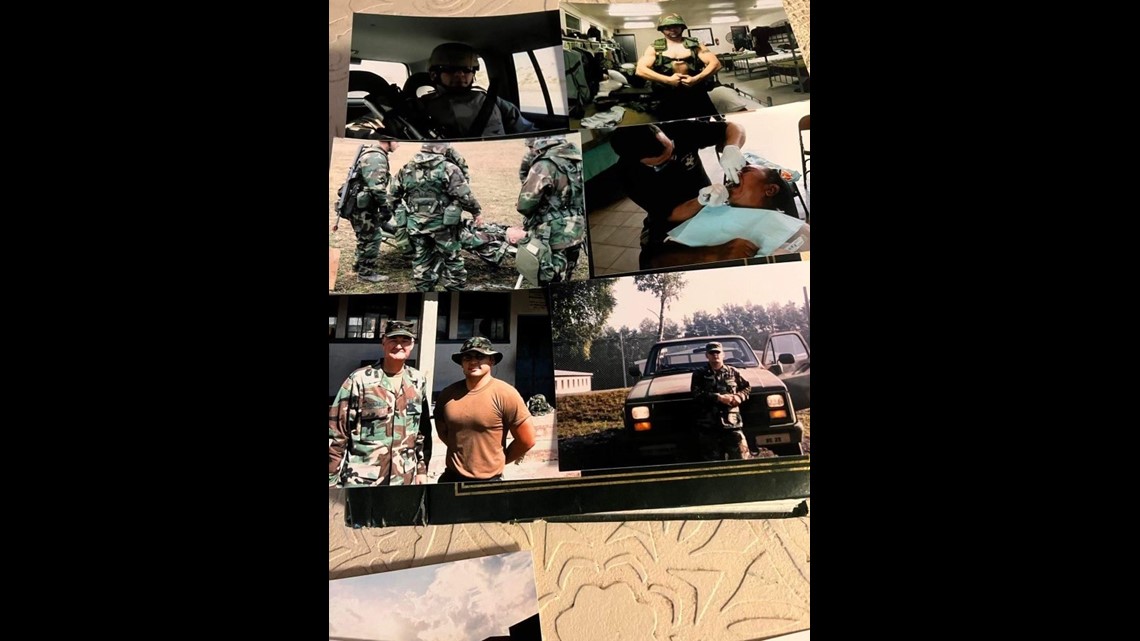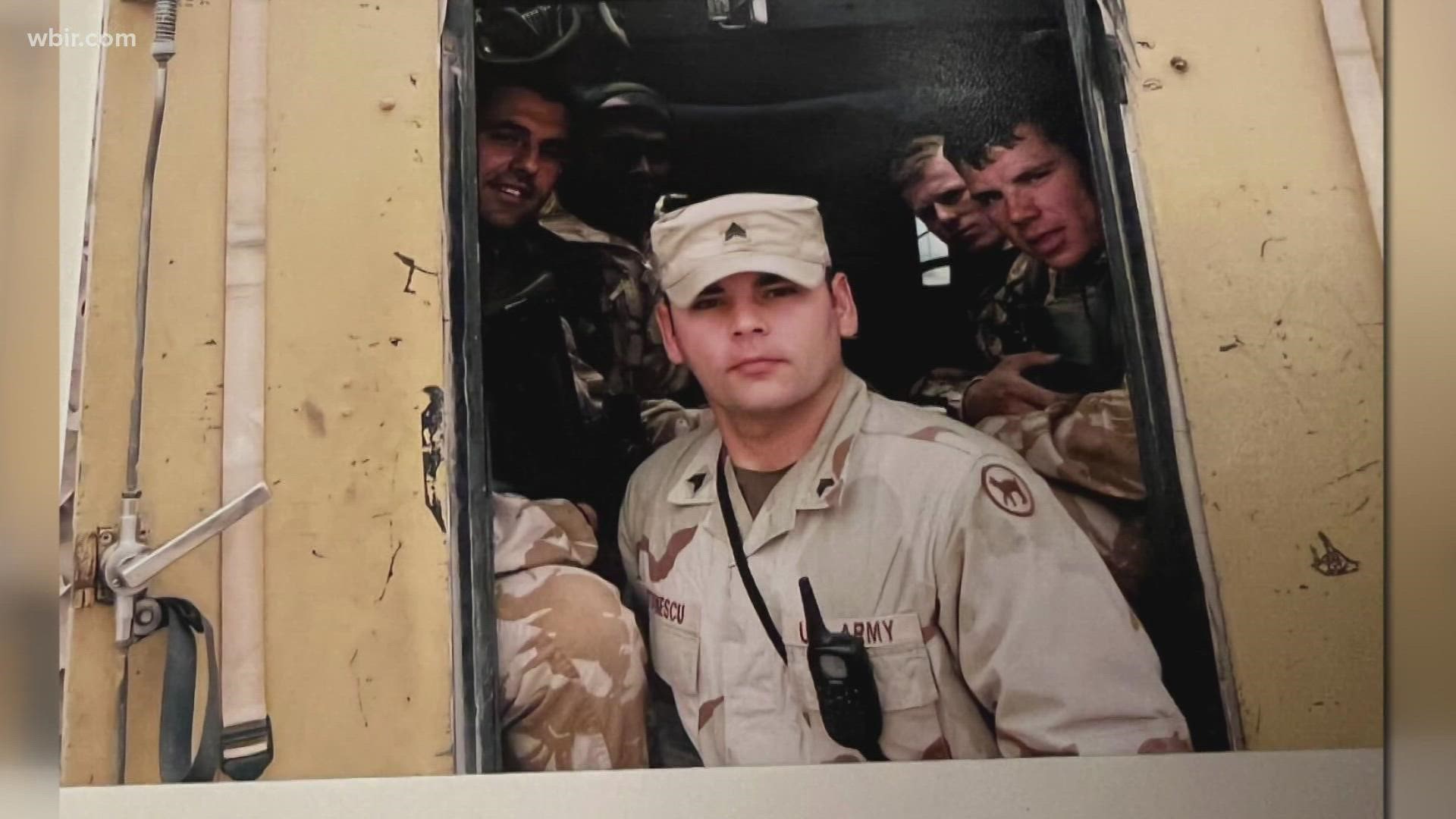KNOXVILLE, Tenn. — The role of a combat medic is to run into battle in an effort to save the lives of fellow troops.
“He deserved a level of care that he gave to others, and when it came time that he was in need, he was forgotten,” said Jacob Ankrom about his friend Sorin Stanescu who took his own life within hours of seeking help at a Veterans Affairs clinic in Knoxville.
“I'm just really sad. I'm really sad for my brother, I'm really sad for my mom, I'm really sad for myself. I'm sad for so many veterans who actually go through this every day and who have those thoughts,” said Adi Finsen, who was calling the VA crisis hotline last September, desperate to help her brother.


“(the VA clinician) said, we can make an appointment. But it's going to be two weeks before we get you in to see a doctor,” said longtime friend Ty Nance who coaxed Stanescu to the clinic.
Friends and family say Stanescu had a documented history of mental health struggles tied to PTSD following his war service in Afghanistan.
“He came here an immigrant (he was born in Romania). He was taught to be hardworking, respectful. give to others. He embodies the American dream and he gave his life for this country,” said Ankrom who followed the lead of his friend and joined the military.
“I know there are great men and women that work in VA. But at the same time, we I know a great man that's no longer here with his family, with his daughter, with his mother. And so what I see is a failure. But I can't blame it on the VA. It's my failure,” said Ankrom.
His family said they ask themselves many different questions following his death.
"Could the VA have asked better screening questions? Should we change the protocol and admit veterans for care based on the concerns of friends or family that they might harm themselves?"
Those are questions friends and family members of 39-year-old Sorin Stanescu are wrestling with months after he took his own life. Family members say he had endured a string of personal and professional struggles tied to his war service.
“I don't know what the solution is, but I want change. And I want, I want to find a way to protect the veterans and do more for them,” said Finsen.
In response to questions about this case in particular the Department of Veterans Affairs included the following statement:
“While we cannot speak to the Veteran’s specific care, our hearts and condolences go out to the family and friends impacted by this loss.”
The VA response goes on to note, “…we review each suicide for confirmation of adherence to processes and policies and regularly evaluate processes for best practices, outcomes, and opportunities to improve.”
In recent years the number of American military veterans who take their own lives has dropped, from 22 to 17 a day. The VA also included more specific suicide data and additional resources for veterans and their families.
If you are a veteran in crisis or anyone who needs help please call this number: 800-273-8255.
You can find more background in the full statement below from the VA in response to the suicide of combat veteran Sorin Stanescu:


While we cannot speak to the Veteran’s specific care, our hearts and condolences go out to the family and friends impacted by this loss.
The health and well-being of the men and women who have served in uniform are the highest priority for Veterans Health Administration (VHA). Any Veteran death by suicide is tragic; even one Veteran suicide is one too many.
Whenever someone dies by suicide, it leaves behind many questions and feelings. Suicide is a complex issue, often without a single cause. Though we may never know all the factors leading to this tragedy, we know that our Veterans carry heavy burdens and many often suffer in silence.
James H. Quillen VA Medical Center takes this loss very seriously, and we review each suicide for confirmation of adherence to processes and policies and regularly evaluate processes for best practices, outcomes, and opportunities to improve.
Across the VHA, we highly encourage Veterans, service members, and their loved ones in crisis to seek VHA help immediately by calling the Veterans Crisis Line at 1-800-273-8255 and pressing 1. They may also send a text to 838255, or chat online at https://www.VeteransCrisisLine.net to receive free, confidential support. Support is available 24 hours per day, seven days per week, 365 days per year, even if they are not registered with Veterans Administration (VA) or enrolled in VA health care.
VA’s most comprehensive source of Veteran suicide mortality data is the VA Mortality Data Repository (MDR). It is based on joint VA and Department of Defense (DoD) searches of the CDC National Center for Health Statistics’ National Death Index Statics. VA conducts analysis of Veteran suicide rates and publishes findings in an annual report in September. The 2021 report is based on death certificate data that are currently only available through 2019 and reflects an average of 17.2 Veteran suicides per day. This is a decrease in average Veteran suicides from 2018 (17.6 suicides per day) and from 2017 (17.5 suicides per day).
The attachment provides the most recent Tennessee Veteran Suicide data sheet. Statistical information and additional suicide prevention resources may be found at the links below.
While we appreciate the opportunity for an on-camera interview, we are unable to facilitate them for individual health care.

